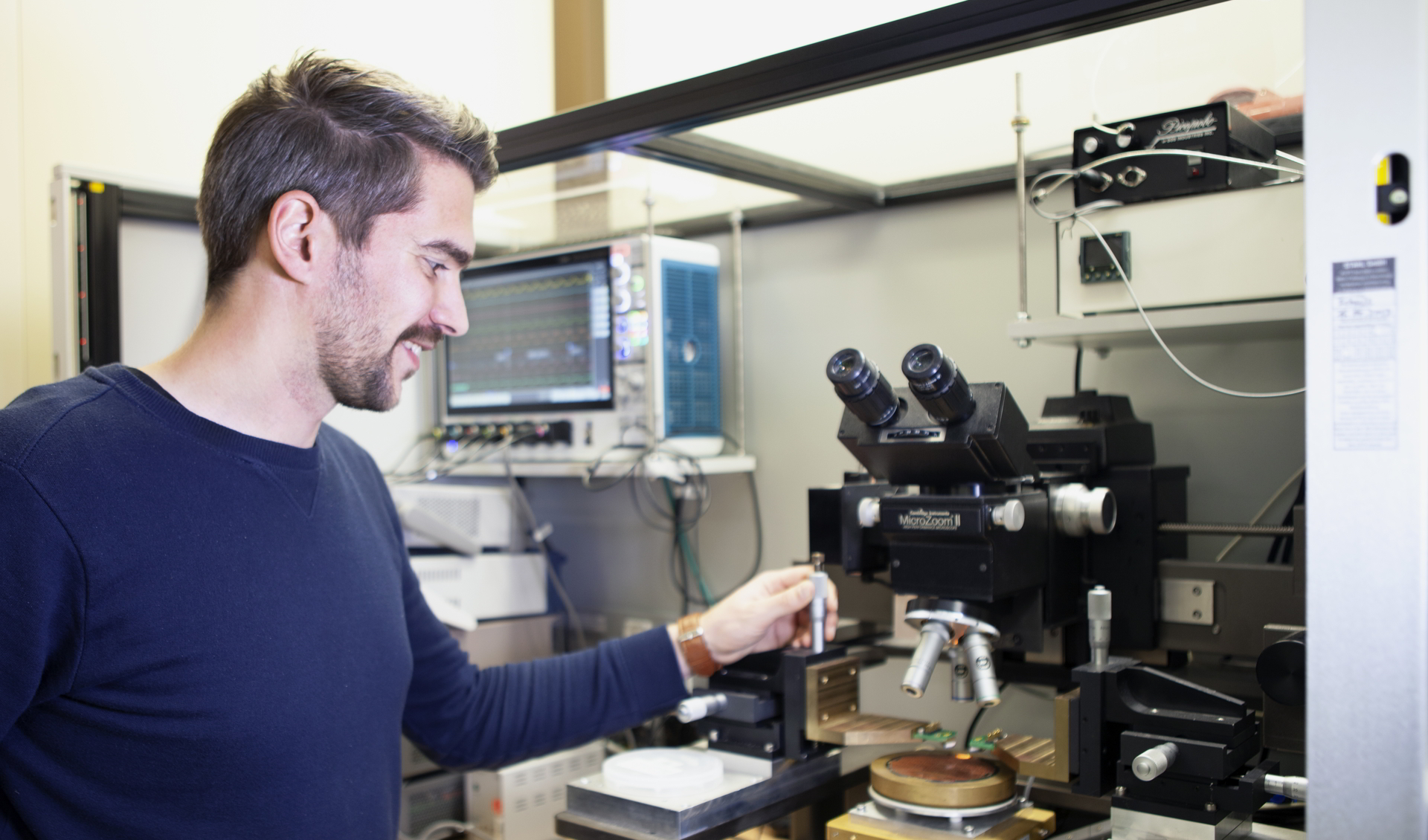Why and how did you join Fraunhofer IAF?
When I first heard of Fraunhofer IAF I was immediately struck by the fact that they manufacture their own semiconductors. Without hesitation, I started my master’s thesis at Fraunhofer IAF in 2018 and afterwards I was offered the opportunity to continue my work in form of a dissertation. The institute offers a great infrastructure with a direct link to the clean room and device manufacturing. This allows for the development of new concepts and individual components - which of course offers many possibilities for my research. I, for my part, start with the design of components and circuits. My colleagues then process them, after which I characterize them. Then I continue to work on the assembly technology, and finally I move on to the application, i.e. the commissioning of a finished demonstrator. This kind of research infrastructure, which covers the entire semiconductor value chain, is very rare at other research institutes.
What are you currently researching?
Together with my colleagues, I am researching gallium nitride-on-silicon (GaN-on-Si) technology for use as power semiconductors in energy-efficient DC-DC converters. Due to its lateral structure, the semiconductor material gallium nitride allows the integration of additional components to the power switch on a single chip. A voltage converter consists of power switch, drive and control, and protection circuits. In this context, I am investigating a full or complete integration in this technology to a so-called GaN Power System-on-Chip (Power SoC) for the low voltage class, for example in battery applications. The battery not only includes the battery itself, but also power electronics in the form of a low-voltage converter that adapts the output voltage of the battery to the corresponding load.
For this purpose, I develop and optimize components and circuits. From this full integration, we hope to achieve a higher power and functional density with simultaneously low costs compared to discretely designed systems. Such forms of high integration are primarily driven by an increased demand for efficient and compact systems in information technology, mobile and battery-powered applications, which we are also increasingly noticing in our own behavior.
What fascinates you about power electronics?
The exciting thing for me, and I always say this when I teach, is the extreme range of power electronics from milliwatts to megawatts. In some cases, I work with up to 100 amps and 1000 volts. I am also interested in measurement and safety technology, which plays a major role. With such large currents and voltages, there is always a certain thrill, because if something goes wrong, the components explode and are destroyed. Of course, that has to be avoided and makes power electronics so exciting for me.
 Fraunhofer Institute for Applied Solid State Physics IAF
Fraunhofer Institute for Applied Solid State Physics IAF
